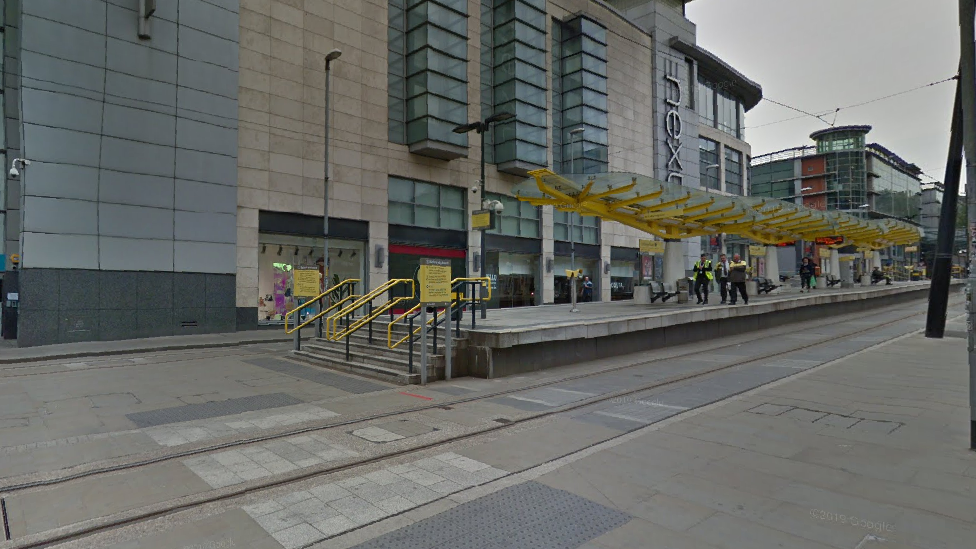Dispersal orders 'not fair' on young people who bear the brunt of them
- Published

Studies have shown dispersal orders disproportionately impact young people
Anti-social behaviour laws which give police powers to restrict freedom of movement are being used thousands of times a year, prompting claims of their overuse from human rights groups.
Dispersal orders, which particularly impact young people, have been used about 2,000 times a year since they were introduced in their current form.
Teenagers said the restrictions made them feel "not part of society".
But police leaders said the orders were an "important" crime-fighting tool.
Police officers can use dispersal orders to direct people suspected of causing nuisance, harassment or distress away from a specified area for a period of up to 48 hours.
Those refusing to leave can be arrested, with conviction carrying a fine up to £2,500 or three months in prison.
Your device may not support this visualisation
Research by organisations such as the Centre for Crime and Justice Studies, external found younger people were far more likely to be subjected to them than the general population.
In some areas of England, 47% of the orders were handed to teenagers and young adults.
The BBC North West investigation team approached 39 police forces across England to ask how many dispersal orders had been issued in each of the last 10 years since the 2014 Anti-Social Behaviour, Crime and Policing Act.
Many forces said they either did not hold such data centrally or that it would be too costly to recover the necessary information.
Seventeen forces responded in part or in full to the request, though, revealing that dispersal orders had been issued nearly 20,000 times since 2014 - an average of 37 a week.
Home Office guidance states that "restricting an individual's freedom of movement is a serious issue" and therefore "the power should not be invoked lightly".
In areas where there are regular problems with anti-social behaviour, the Home Office advises that "police work with the local council to find a sustainable long-term solution".
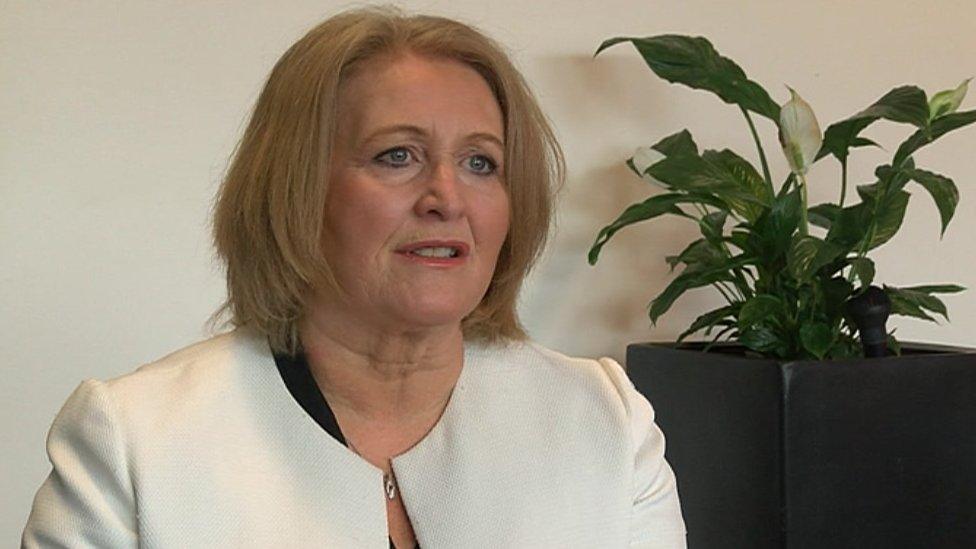
Anne Longfield called for more investment in youth services
Former children's commissioner Anne Longfield said the increasing use of the power was a "potentially dangerous and damaging approach for young people and the community as a whole".
"They're a blunt instrument," she said. "They're meant to be an emergency solution. It's not a sustainable way to go about things.
"If there are real concerns about anti-social behaviour... that needs not only a short-term solution but a long-term one too.
"We can't just get tougher and tougher. What are we going to do, have a dispersal order for a whole town? I don't think so."
Ms Longfield, who chairs an independent commission on young people, cited research by the National Youth Agency (NYA) which found that spending on youth services had fallen by about 70% since 2010, from £1.2bn in 2010-11 to £379m in 2020-21.
"We need to instead start looking at how young people can be supported in communities and that means investing in them," she said.
'Keep bashing'
Paul Oginsky, chief executive of Merseyside youth charity Vibe, agreed with Ms Longfield's analysis.
"To me, dispersal orders are like a hammer," he said. "And to someone with a hammer, every problem is a nail.
"The approach is 'let's just keep bashing', but we need to stop and think again.
"I think part of the problem is that over the years people have stopped valuing young people as part of the community, sometimes they're seen as a nuisance and are almost seen as the enemy, people are scared of them.
"Young people are the greatest asset we've got. I've always found that if you invest time and effort with young people they pay back in dividends."
Mr Oginsky warned that cuts to youth services were often costly.
"Youth workers are worth their weight in gold," he explained.
"A youth worker's relationship to a young person is key, they form positive relationships with young people so that they can help them make better decisions in their lives."

Vin and Jasmine both feel the use of dispersal orders is unfair on young people
Vin is a member one of Vibe's youth councils and meets regularly with other young people in St Helens to discuss issues in the community.
"These orders are not sending the right message to young people, they're telling us that we're just not really part of society", the 15-year-old said.
"Most young people aren't trying to cause disturbance or anti-social behaviour - it's not really fair."
Fellow Vibe member Jasmine, 13, added: "Our town is a public area, we should be able to go out... it just makes me feel really frustrated."
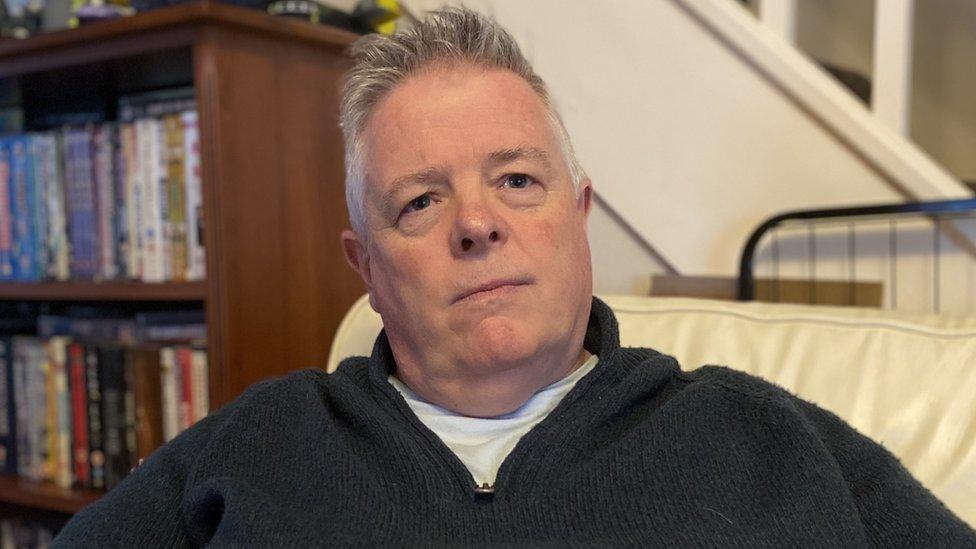
Mark Craig backs the police use of dispersal orders
But for many, dispersal orders are an important tool in the fight against crime.
Mark Craig, from the New Ferry residents' association in Wirral, witnessed police deploy an order last year after a spate of crimes.
He said there had been a number of incidents with young people "attacking passing buses by throwing bricks" and "stealing and burning bins from nearby businesses".
"Anti-social behaviour is not unique to here, but things have been going from bad to worse," he said.
"The gangs that hang around can sometimes be quite large in number and seem very intimidating."
Mr Craig backed dispersal orders, but added: "As a society, we need to look at deterrence and punishments because what we have at the moment is not sufficient."
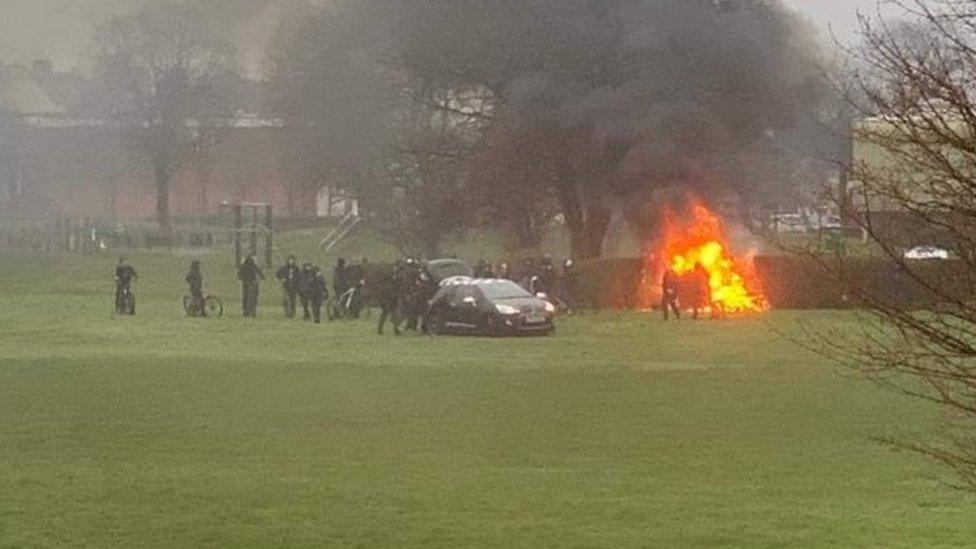
Mark Craig took images of young people defying a dispersal order in New Ferry last year
The government is currently looking to toughen anti-social behaviour powers further with its Criminal Justice Bill.
Among other measures, the bill would see dispersal orders extended from 48 to 72 hours.

David Blunkett introduced the original dispersal orders 21 years ago
Former home secretary David Blunkett, who oversaw the introduction of 24-hour dispersal orders in 2003, told the BBC that the balance between protecting the community and stopping anti-social behaviour was a "delicate one".
"In 2003, we indicated that we wanted to offer communities a breathing space from persistent anti-social behaviour, to give all agencies a chance to put positive measures in place," said Lord Blunkett.
"This was at a time when we were investing in youth and leisure facilities, rather than the austerity measures which reduced spending on youth provision from 2010 by a staggering 75%."
Asked about the increasing use of dispersal orders since 2003, Lord Blunkett said "there is always a danger of the pendulum swinging too far."
'Important tool'
Det Ch Con Andy Prophet, National Police Chiefs' Council Lead for anti-social behaviour, said dispersal orders were "an important tool" and were "proven to prevent repeat occurrences of anti-social behaviour".
"Everyone should be able to live a life free from harassment, intimidation and nuisance behaviour in their own communities," he said.
"Forces regularly respond to reports of anti-social behaviour, and the public rightly expect the police to take action when there are gatherings of people, regardless of their age, committing crime or making communities feel unsafe."
He added: "We recognise the restrictive nature of dispersal orders, and that's why there are tight regulations in place, to ensure that officers are using them fairly and appropriately."
A Home Office spokesman said the decision to issue dispersal orders was "a matter for individual police forces."

Why not follow BBC Merseyside on Facebook, external, X, external and Instagram, external? You can also send story ideas to northwest.newsonline@bbc.co.uk, external
Related topics
- Published27 March 2023
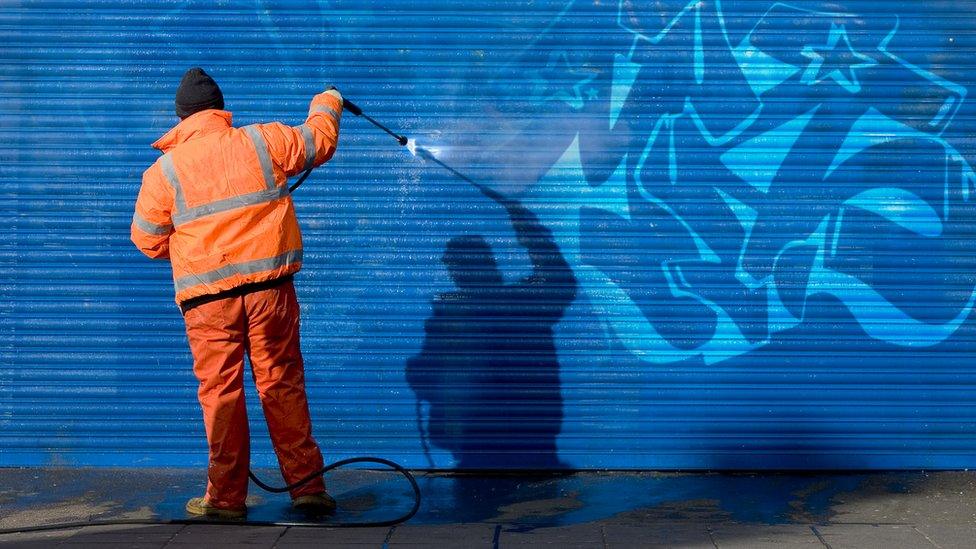
- Published22 September 2022
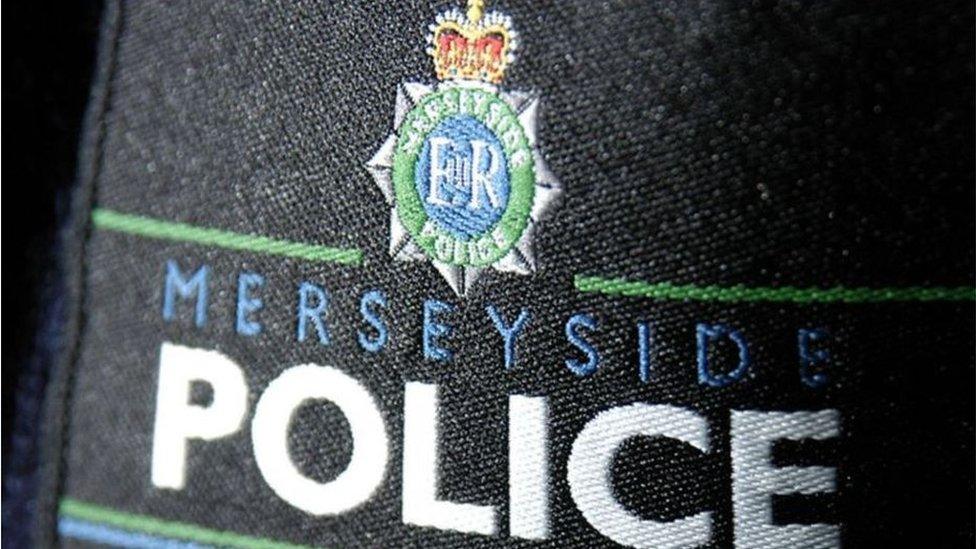
- Published8 May 2023
